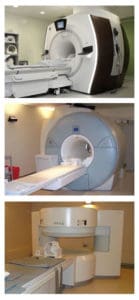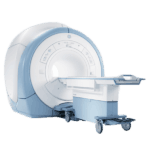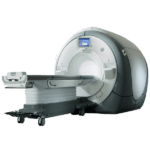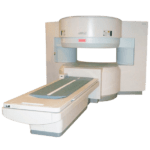Buying any capital medical equipment is a big decision, and an even bigger investment

With technology constantly evolving, buyers want to make sure they have the latest and greatest. But unlike smart phones and tablets, it’s not always about following the hype when it comes to MRI scanners. MRI scanners are growing increasingly complex, and as a result, buyers now have more decisions to make when selecting a scanner. It is no longer simply a choice of field strength or whether to opt for an open or closed system. You must know what type of studies you plan to perform and which MRI capabilities will help optimize your results.
Buying any capital medical equipment is a big decision, and an even bigger investment. So how do you know which MRI Scanner to purchase? Before finalizing an MRI Scanner type, consider these aspects:
i. What is the patient load?
ii. What is your budget in terms of initial equipment purchase and maintenance cost?
iii. Is your site an IDTF, physician owned hospital, or research center?
iv. Observe the geographical area to determine how many facilities in the area are already performing MRI scans, the population in the area, and how many physicians, neurologists, neurosurgeons and orthopedic surgeons are in this area.
Get Started
Request Pricing Today!
We’re here to help! Simply fill out the form to tell us a bit about your project. We’ll contact you to set up a conversation so we can discuss how we can best meet your needs. Thank you for considering us!
Great support & services
Save time and energy
Peace of mind
Risk reduction
Answering these questions can help you logically conclude which scanner is the best investment for your particular business; and help you avoid long-standing financial difficulties and feasibility problems. It’s like buying the right car for you. There are a variety of models with different pricing, but the importance of it comes down to how much you can afford to spend on a car and whether it will satisfy your lifestyle requirements to a large extent.
For an MRI Scanner, the image quality and strength of the magnet are very important. Generally, high-field scanners (1.5 Tesla magnets) are regarded as the best magnet strength with higher quality images and easier marketing capabilities, whereas low to mid-field scanners (0.25 to 0.5 Tesla magnets) are more cost-effective. They also generate a high resolution image, but a slower processor, and may not be adequate in certain cases where detail is imperative. To compare and choose between superconducting MRIs and permanent systems depends on your needs, capability, and budget. Use the chart below to help you better differentiate between your choices.
Advantages and Disadvantages with Various Types of MRIs.
| Type of MRI | Field Strength | Advantages | Disadvantages |
| Open or Upright MRI (Fonar Upright, Siemens Magnetom Open) | 0.2T to 0.5T | On/off switch Low initial cost Reasonably good quality images Patient friendly | Heavy and high power consumption Low field strength Not fit for high-end imaging and special applications |
| Permanent Magnet (Hitachi Airis Elite) | 0.3T to 0.7T | Easy maintenance Low power consumption Patient friendly Can complete most clinical routine work | Low field Cannot be turned off Not able to perform high-end applications |
| Superconducting (Philips Achieva 3T, Siemens Avanto 1.5T, Hitachi Echelon 1.5T) | 0.5T to 3T | High field applications High homogeneity Ideal for thin slices and high end applications such as functional imaging and spectroscopy | High initial and running costs (expensive cold heads and service contracts) High power consumption (24-hour working AC needed) Can quench Frequent helium fill |
| Superconducting Open, Hybrid (Hitachi OASIS 1.2T, Philips Panorama 1T) | 0.6T to 1.5T | Decent quality images Mid-field applications Open access | Expensive Heavy High power consumption Requires helium use |
Remember, prior to sealing the deal on an MRI scanner, you also need to consider space configurations. The site planning process is quite possibly the most important step in successfully implementing a new or refurbished system. Customers must analyze and understand every angle around the field, from properly storing chillers to identifying ferromagnetic materials. Give us a call or view our MRI blog for a more detailed list of items to consider when planning for an installation.
Posted by:
Bobby Serros
MRI & CT Specialist
407.438.7847
References:



